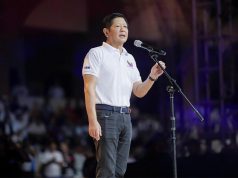DAVAO CITY — Mayor Sara Duterte-Carpio, seven city officials and two representatives from an environment watchdog will travel to Japan next week to study the USD 70-million waste-to-energy (WTE) project which is eyed to improve the city’s waste management.
This was announced by the mayor saying that they will be going to Japan upon the invitation of the Japanese firm in the City of Kitakyushu to observe its own WTE operation. It will be an all-expenses paid by the city government of Kitakyushu.
The Japanese firm, Nippon Steel, has offered to do the WTE facility that can accommodate about 600 metric tons daily.
The project is eyed for a joint venture initiative between Nippon Steel, the city government, and the Kitakyusho City. Duterte-Carpio said the city would be a recipient of a grant from Japan for the implementation of the WTE project.
The mayor wants to replicate the WTE project considering that the city’s landfill site in New Carmen is already in a critical stage. She said she had invited two representatives of the Ecowaste Coalition, which has expressed its opposition to the WTE because it’s reportedly a form of incineration.
Incineration is not allowed under the Clean Air Act law. EcoWaste Coalition is a network of community, church, school, environmental and health groups pursuing sustainable solutions to waste, climate change and chemical issues facing the Philippines and the world has called for the city government of Davao to junk the waste to energy incineration proposal.
Earlier, City Planning chief Ivan Cortez said the City Environment and Natural Resources Office (CENRO) is looking new areas in the north and southern part of the city that would measure about 15 hectares each. The site will be allotted for the landfill with 10 hectares and WTE with five hectares.
Councilor Marissa Abella backs the WTE as the other answer to the city’s garbage problem since the city is disposing of all garbage in the landfill. Abella said CENRO is collecting 400 to 500 tons of garbage daily.
She said the waste-to-energy will collect all residual waste and convert into energy that can be utilized by the households.










